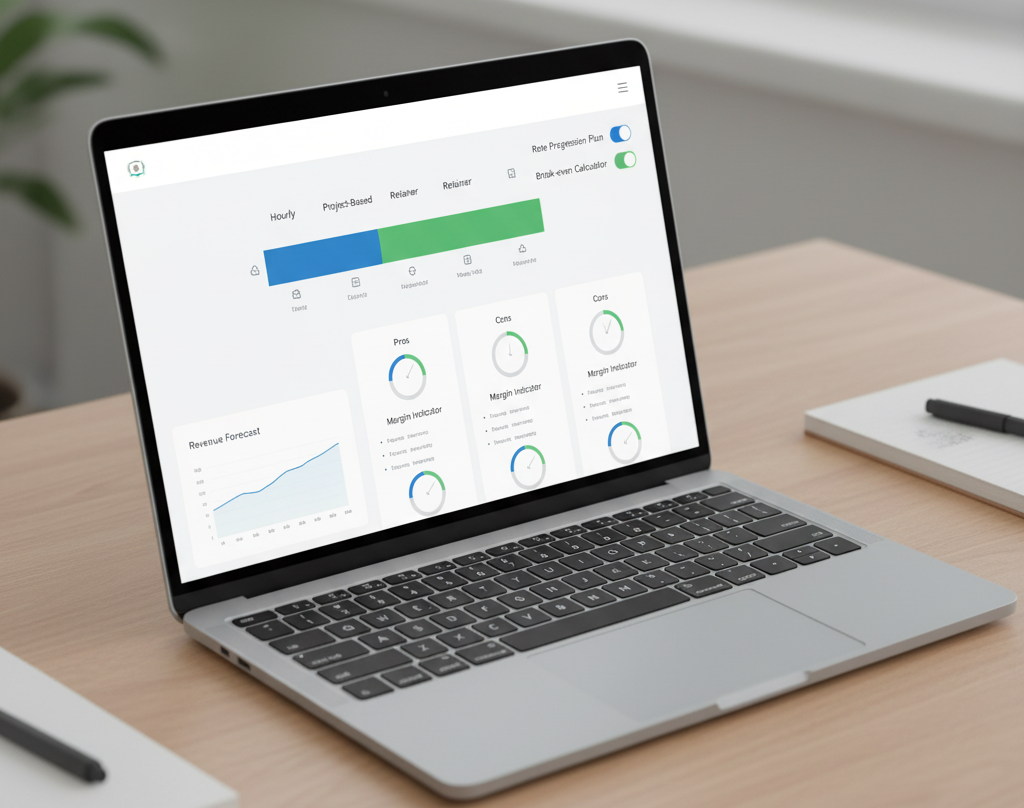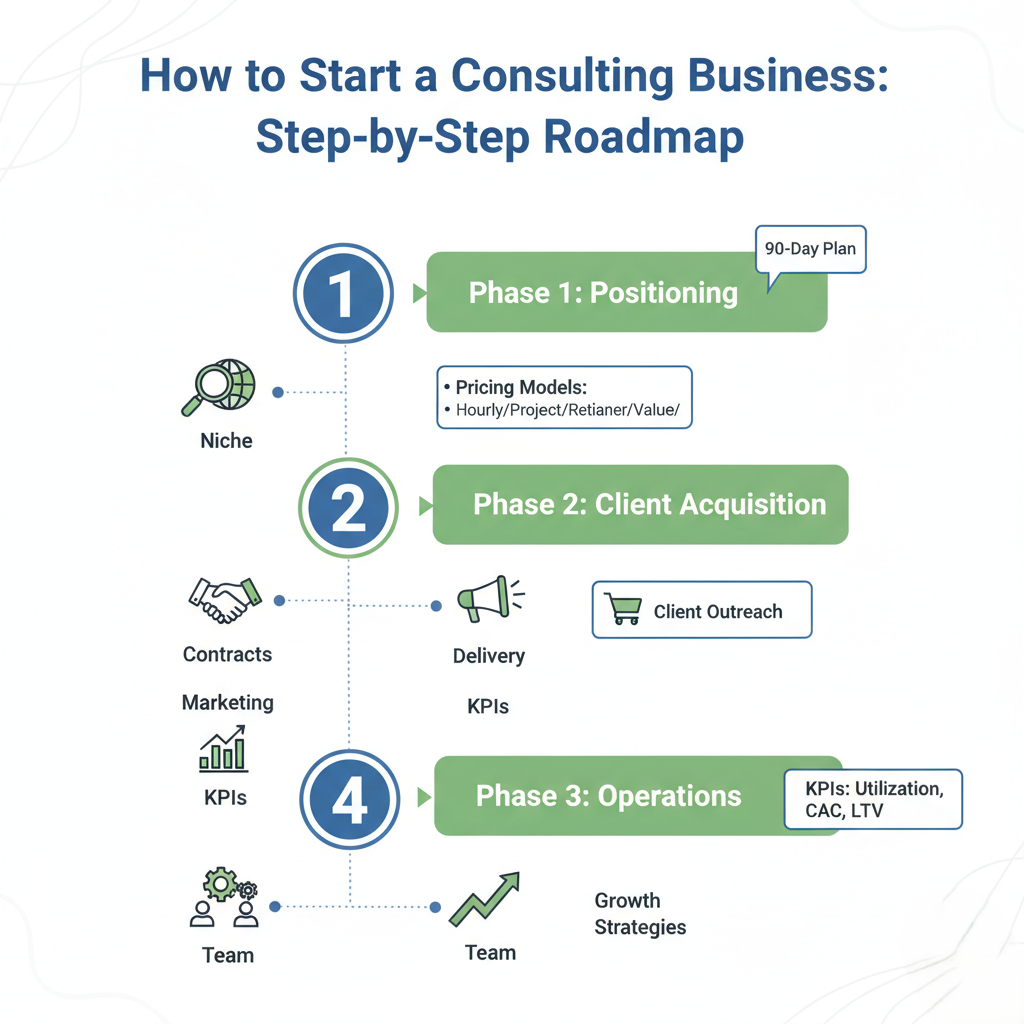Starting a consulting business is an exciting entrepreneurial opportunity that allows professionals to leverage their expertise and provide value to clients across industries. The global consulting market is growing rapidly, driven by increasing demand for specialized advice and flexible project-based work arrangements. But launching a consulting firm is not just about having deep knowledge—it requires a strategic business approach.
This guide offers actionable steps, proven strategies, and key considerations for building a successful consulting business. Whether starting solo or aiming to scale to a full firm, consultants must navigate unique challenges such as establishing credibility, managing irregular income, pricing expertise, and developing sustainable growth.
Understanding the Consulting Opportunity Landscape
The consulting industry worldwide is projected to reach around $479 billion by 2025, expanding at a healthy annual growth rate. This growth is fueled by organizations seeking flexible, expert solutions for challenges like digital transformation, operational efficiency, and change management.
However, generic business advice often falls short for consultants. Unlike product-based businesses, consultants sell their expertise, making revenue streams less predictable. Building a personal brand and establishing trust with clients are paramount. A strategic framework tailored to consulting can help bridge the gap between expertise and a profitable business.
Foundational Steps: Positioning Your Consulting Business

Discover Your Niche and Define Your Value Proposition
Start by assessing your skills against market needs. Identify your unique “superpower”—the specific expertise or insight you deliver better than others. Conduct market research to find gaps underserved by existing consultants and evaluate the profitability and demand of potential niches.
Craft a clear value proposition that articulates the problems you solve and the outcomes clients can expect. This helps differentiate your service and aligns your marketing messaging with client priorities.
Conduct Market Research and Competitive Analysis
Develop a detailed profile of your ideal clients, focusing on industries, company size, and decision-maker personas. Understand their pain points and buying behaviors. Analyze competitors to benchmark pricing, offerings, and identify opportunities to stand out.
Choose Your Business Model and Set Up Legally
Decide whether to operate as an independent consultant or establish a consulting firm. Consider service delivery models such as hourly rates, project fees, retainers, or value-based pricing. Each has different scalability and cash flow implications.
Register your business legally, choosing the appropriate structure (LLC, corporation, sole proprietorship). Understand tax obligations, licensing, and certification requirements relevant to your field and location.
Business Development: Acquiring Clients and Generating Revenue

Develop Pricing Strategies and Financial Projections
Price your services based on market benchmarks, client value delivered, and your business goals. Consider starting with competitive rates and increasing as your reputation grows. Prepare detailed financial projections to estimate startup costs (typically $5,000 to $50,000), revenue targets, and profitability timelines.
Establish Legal Protections and Manage Risks
Draft comprehensive contracts that clearly define services, deliverables, payment terms, confidentiality, and liability limitations. Secure professional liability insurance to protect against claims. Evaluate additional insurance needs like general liability and cyber risk coverage.
Build Your Marketing Presence
Create a professional website showcasing your expertise and services. Optimize your LinkedIn profile and engage in content marketing and thought leadership to attract clients. SEO and local marketing can increase visibility.
Network Strategically
Develop a strategic networking plan to build relationships in your industry. Attend events, join professional groups, and leverage referrals. Partnerships and collaborations can expand your reach and credibility.
Operational Excellence: Delivering Value to Clients
Implement Systems and Processes
Standardize client onboarding, project management, and quality assurance processes. Use technology tools for CRM, task management, and communication to improve efficiency. Develop templates for proposals, contracts, and reports to streamline workflows.
Manage Client Relationships
Maintain clear communication and set expectations upfront. Provide regular progress updates and manage changes diligently. Measure client satisfaction and use feedback to improve service quality and encourage repeat business.
Monitor Financial Performance
Utilize accounting software for bookkeeping, invoicing, and tax preparation. Track expenses closely and forecast cash flow considering the variable income in consulting. Analyze project-level profitability to focus on your most valuable services.
Also Check: What Makes a Successful Business Development Director? Traits, Skills, and Best Practices
Growth and Scaling: Expanding Your Consulting Business

Evolve Your Business Model
Develop additional revenue streams such as training programs, information products, or licensing intellectual property. Decide whether to remain solo or build a team and expand geographically. Each path requires different strategies and investments.
Apply Advanced Growth Strategies
Focus on scaling high-value activities like strategic sales and client relationship building. Delegate operational tasks as you grow and leverage technology to increase capacity. Build strategic partnerships with complementary service providers and larger firms.
Plan for Long-Term Sustainability and Exit
Invest in building a recognizable brand beyond your personal reputation. Develop succession plans and consider eventual exit strategies such as selling the business or merging with larger consulting firms.
Implementation Roadmap: From Concept to First Client
90-Day Quick Start Plan
- Month 1: Validate your niche, establish legal structure, develop basic marketing materials, and start networking.
- Month 2: Finalize pricing, launch initial client acquisition efforts, prepare contracts and proposals, set up financial systems.
- Month 3: Deliver first client projects, refine processes based on feedback, and plan growth strategies.
Year One Milestones
Aim to meet client acquisition targets, achieve revenue goals, establish a visible market position, and identify scaling opportunities by year’s end.
Long-Term Perspective
Over 2-5 years, build thought leadership, expand your team, enter new markets, and prepare for possible exit or transition.
Essential Tools and Resources
Equip yourself with CRM systems, project management platforms, accounting software, and marketing tools. Use ready-made templates for contracts, proposals, and financial projections to save time. Regularly update your knowledge on legal compliance and insurance requirements.
Advanced Considerations
Explore consulting niches in high-demand sectors like digital transformation, HR, marketing, and strategy. If working internationally or remotely, adapt to cultural differences and legal frameworks. Leverage AI and automation tools to maximize productivity.
Troubleshooting Common Challenges
Struggling with client acquisition? Refine your niche, marketing strategy, and networking efforts. Facing cash flow issues? Improve forecasting and manage payment terms carefully. During scaling, maintain quality with robust processes and train your team effectively.
Conclusion
Building a consulting business is a rewarding venture that blends expertise with entrepreneurial discipline. Success hinges on systematic planning, strategic marketing, and operational excellence. By following this comprehensive roadmap, consultants can transform professional knowledge into a sustainable and scalable business that delivers lasting value to clients and creates financial prosperity.
Starting strong and growing smartly ensures your consulting practice thrives in an evolving marketplace. It’s not just about being an expert — it’s about building a business that consistently solves problems, generates impact, and stands the test of time.

